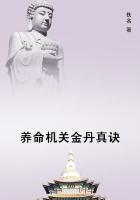But before this decision of the Crown was made, the services of Wyclif had been accepted by the Parliament in its resistance to the claim which Pope Urban V. had made in 1366, to the arrears of tribute due under John's vassalage. Edward III. had referred this claim to Parliament, and the Parliament had rejected it without hesitation on the ground that John had no power to bind the realm without its consent. The Parliament was the mere mouthpiece of Wyclif, who was now actively engaged in political life, and probably, as Dr. Lechler thinks, had a seat in Parliament. He was, at any rate, a very prominent political character; for he was sent in 1374 to Bruges, as one of the commissioners to treat with the representatives of the French pope in reference to the appointment of foreigners to the rich benefices of the Church in England, which gave great offence to the liberal and popular party in England,--for there was such a progressive party as early as the fourteenth century, although it did not go by that name, and was not organized as parties are now. In fact, in all ages and countries there are some men who are before their contemporaries. The great grievance of which the more advanced and enlightened complained was the interference of the Pope with ecclesiastical livings in England.
Wyclif led the opposition to this usurpation; and this opposition to the Pope on the part of a churchman made it necessary for him to have a protector powerful enough to shield him from papal vengeance.
This protector he found in John of Gaunt, Duke of Lancaster, who, next to the King, had the greatest authority in England. It is probable that Wyclif enjoyed at Bruges the friendship of this great man (great for his station, influence, and birth, at least), who was at the head of the opposition to the papal claims,--resisted not only by him, but by Parliament, which seems to have been composed of men in advance of their age. As early as 1371 this Parliament had petitioned the King to exclude all ecclesiastics from the great offices of State, held almost exclusively by them as the most able and learned people of the realm. From the time of Alfred this custom had not been seriously opposed by the baronial lords, who were ignorant and unenlightened; but in the fourteenth century light had broken in upon the darkness: the day had at least dawned, and the absurdity of confining the cares of State and temporal matters to men who ought to be absorbed with spiritual duties alone was seen by the more enlightened of the laity. But the King was not then prepared to part with the most efficient of his ministers because they happened to be ecclesiastics, and the custom continued for nearly two centuries longer. Bishop Williams was the last of the clergy who filled the great office of chancellor, and Archbishop Laud was the last of the clergy who became a prime minister. The reign of Elizabeth was marked, for the first time in the history of England, by the almost total exclusion of prelates from great secular offices. In the reign of Edward III. it was William of Wykeham, Bishop of Winchester, who held the great seal, and the Bishop of Exeter who was lord treasurer,--probably the two men in the whole realm who were the most experienced in public affairs as men of business. Wyclif, it would appear, although he was an ecclesiastic, here took the side of Parliament against his own order. In his treatise on the "Regimen of the Church" he contends that neither doctors nor deacons should hold secular offices, or even be land stewards and clerks of account, and appeals to the authority of the Fathers and Saint Paul in confirmation of his views. At this time he was a doctor of divinity and professor of theology in the University, having been promoted to this high position in 1372, two years before he was sent as commissioner to Bruges. In 1375, he was presented to the rectory of Lutterworth in Leicestershire by the Crown, in reward for his services as an ambassador.
In 1376 Parliament renewed its assault on pontifical pretensions and exactions; and there was cause, since twenty thousand marks, or pounds, were sent annually to Rome from the Pope's collector in England, a tribute which they thought should be canceled. Against these corruptions and usurpations Wyclif was unsparing in his denunciations; and the hierarchy at last were compelled, by their allegiance to Rome, to take measures to silence and punish him as a pertinacious heretic. The term "heretic" meant in those days opposition to papal authority, as much as opposition to the theological dogmas of the Church; and the brand of heresy was the greatest stigma which authority could impose. The bold denunciator of papal abuses was now in danger. He was summoned by the convocation to appear in Saint Paul's Cathedral and answer for his heresies, on which occasion were present the Archbishop of Canterbury and the powerful Bishop of London,--the latter the son of the Earl of Devonshire, of the great family of the Courtenays.
Wyclif was attended by the Duke of Lancaster and the Earl Marshal,--Henry Percy, the ancestor of the Dukes of Northumberland,--who forced themselves into the Lady's chapel, behind the high altar, where the prelates were assembled. An uproar followed from this unusual intrusion of the two most powerful men of the kingdom into the very sanctuary of prelatic authority. What could be done when the great Oxford professor--the most learned Scholastic of the kingdom--was protected by a royal duke clothed with viceregal power, and the Earl Marshal armed with the sword of State?















